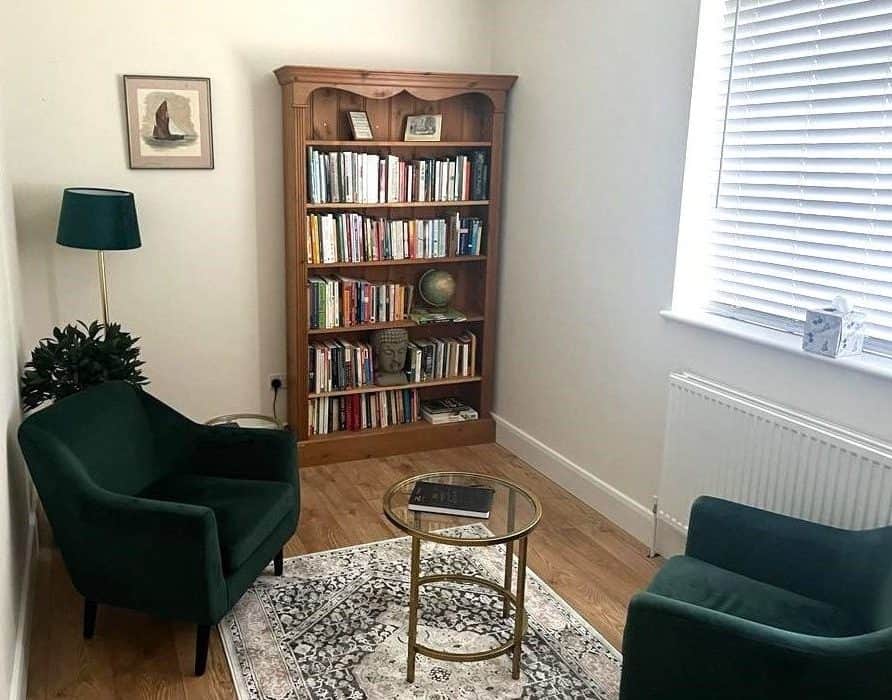My Approach
I am an experienced and compassionate integrative psychotherapist and counsellor, who is passionate about helping people to make sense of their world through understanding themselves better. I identify as neurodivergent. I hold a degree in Integrative Counselling and Psychotherapy and I am a registered member of the British Association for Counselling & Psychotherapists (BACP).
I come with 25 years of experience both in the working world and academia, and understand the complexities of how difficult and complicated life can be. Some reasons why people might want to come to counselling are difficulties with relationships, understanding difficult patterns of behaviour, coming to terms with loss and addiction.
My Approach
I am an experienced and compassionate integrative psychotherapist and counsellor, who is passionate about helping people to make sense of their world through understanding themselves better. I identify as neurodivergent. I hold a degree in Integrative Counselling and Psychotherapy and I am a registered member of the British Association for Counselling & and Psychotherapists (BACP).
I come with 25 years of experience both in the working world and academia, and understand the complexities of how difficult and complicated life can be. Some reasons why people might want to come to counselling are difficulties with relationships, understanding difficult patterns of behaviour, coming to terms with loss and addiction.


An Empathic Space
Finding the right therapist can be a daunting task, so it is important that you find the right one for you. Someone who can begin to understand your difficulties and concerns in a non-judgemental environment. I like to allow people time to make their decision in choosing who they want to work with and who is right for them. I offer an initial assessment so that we can think together about the work and develop a sense of how we could work together.
I have a special interest in working with people who are neurodivergent, and have experience of working with people with active addiction and those recovering from addiction using the 12 step programme. I work holistically using techniques such as mindfulness, spirituality and focusing on the present moment. I also specialise in working with older adults and those who work or have worked in the construction industry.
The space I provide is empathic, non-judgmental and supportive, a place to think about concerns and find solutions. Hopefully leading to a greater sense of self-awareness and personal growth. A safe and confidential space for individuals to explore their thoughts, feelings, and behaviours. The counselling relationship is built on trust and respect, and clients can feel comfortable sharing personal information and discussing sensitive topics.
The therapeutic alliance, or the relationship between the therapist and the client, is considered to be the most important element in counselling. Studies have shown that a strong therapeutic alliance is what leads to the most significant change and growth in the client.


Integrative Psychotherapy
As an Integrative Counsellor I combine different techniques and theories from various schools of therapy to create a unique approach for each individual client. The goal of integrative counselling is to address the whole person, including their mental, emotional, and spiritual well-being, in order to help them achieve optimal mental health. This approach draws from different theories such as humanistic, cognitive-behavioural, psychodynamic, and existential therapies.
I incorporate these approaches by using and maintaining a non-directive stance, allowing the client to lead the direction of the therapy, and giving them the freedom to explore their thoughts, feelings, and behaviours in their own way and at their own pace. It also emphasises the importance of a therapeutic relationship, where the client feels heard, understood, and accepted. You can learn more about integrative counselling and psychotherapy here.
Person-centred Counselling
Person-centred counselling can be helpful for a wide range of issues, such as anxiety, depression, and relationship problems, and it can be particularly beneficial for individuals who may have difficulty expressing themselves or who have had negative experiences with authority figures.
CBT
Cognitive-behavioural therapy (CBT) is a form of psychotherapy that focuses on the relationship between thoughts, feelings, and behaviours. The basic idea behind CBT is that our thoughts and beliefs can affect our emotions and actions, and that by changing these thoughts and beliefs, we can change our emotional and behavioural responses. CBT is a short-term therapy that typically lasts between 12-20 sessions, and is considered an evidence-based treatment for a variety of mental health conditions, such as anxiety, depression, and post-traumatic stress disorder (PTSD).
Existential Counselling
By incorporating Existential counselling into sessions, clients can begin to gain a deeper understanding of their own values and beliefs as well as finding purpose and meaning in their lives. By focusing on their unique experiences and perspectives and helping them understand /accept their own mortality.
Psychodynamic Counselling
Psychodynamic counselling is typically long term and the counsellor pays attention to the clients patterns of behaviour’s, thoughts and feelings. This is done by exploring unconscious thought processes or conflicts that may have stemmed from childhood experiences with care givers. Fundamentally, the aim is to help the client develop a greater understanding of themselves and their relationships in the present, by exploring the past.

